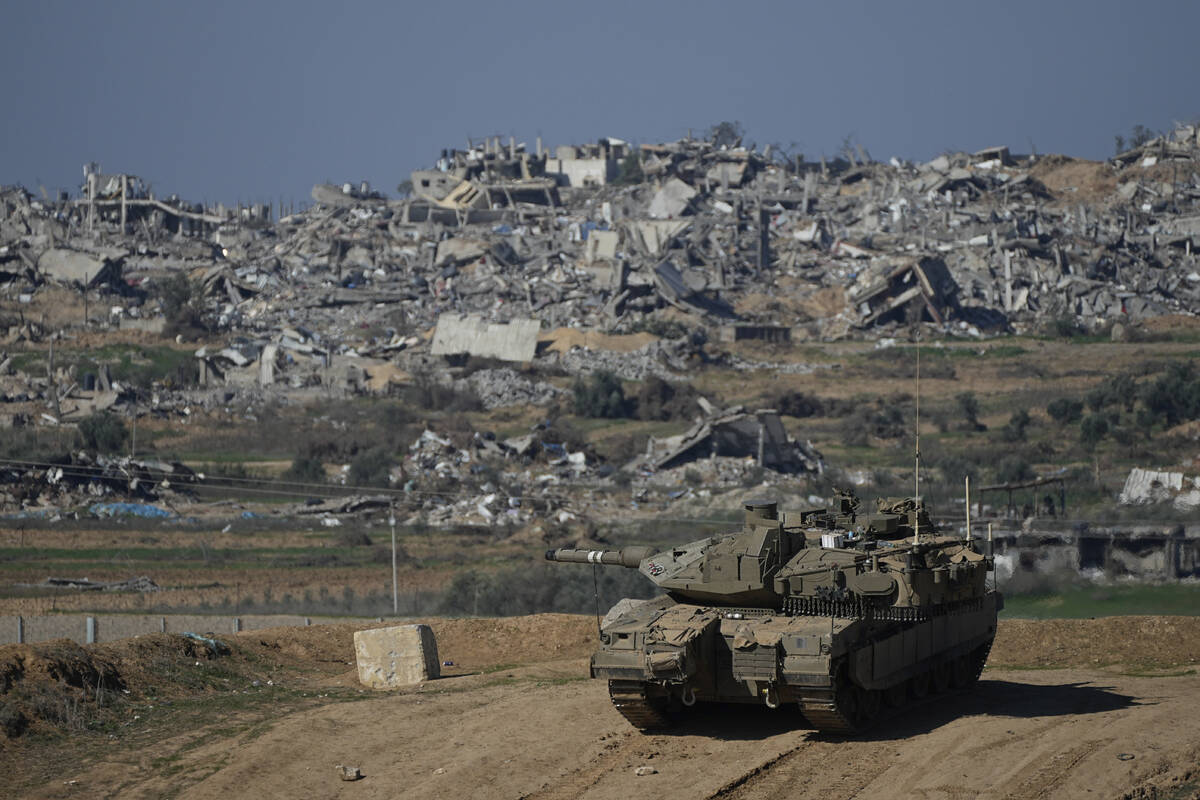Israel signals it has wrapped up major combat in northern Gaza

JERUSALEM — The Israeli military signaled that it has wrapped up major combat in northern Gaza, saying it has completed dismantling Hamas’ military infrastructure there, as the war against the terrorist group entered its fourth month Sunday.
Israel did not address troop deployments in northern Gaza going forward. Military spokesman Rear Adm. Daniel Hagari said late Saturday that forces would focus on the central and southern parts of the territory and strengthen defenses along the Israel-Gaza border fence.
The announcement came ahead of a visit to Israel by Secretary of State Antony Blinken, who on Sunday was in Qatar, a key mediator. Biden administration officials have urged Israel to wind down its air and ground offensive in Gaza and shift to more targeted attacks against Hamas leaders.
In recent weeks, Israel has scaled back its military assault in northern Gaza and pressed its offensive in the south.
Israeli Prime Minister Benjamin Netanyahu says the war will not end until the objectives of eliminating Hamas, getting Israel’s hostages returned and ensuring that Gaza won’t be a threat to Israel are met.
The war was triggered by Hamas’ Oct. 7 attack on southern Israel in which the terrorists killed about 1,200 people, mostly civilians, and took some 250 people hostage.
Israel’s retaliation has killed more than 22,800 Palestinians, according to the Hamas-run Health Ministry in Gaza. The death toll does not distinguish between combatants and civilians.
Israel blames Hamas for civilian casualties because the group operates in heavily populated residential areas.
An airstrike near the southern city of Rafah killed two journalists on Sunday, including Hamza Dahdouh, the oldest son of Wael Dahdouh, Al Jazeera’s chief correspondent in Gaza, according to both the Qatari-owned Arabic-language channel and local medical officials.
Dahdouh lost his wife, two children and a grandchild in an Oct. 26 airstrike, and was wounded in an Israeli strike last month that killed a co-worker.
Israeli forces pushed deeper into the central city of Deir al-Balah, where residents in several neighborhoods were warned that they must evacuate.
Hagari, the military spokesman, said scattered fighting in northern Gaza was to be expected, along with rockets sporadically being launched from there toward Israel. He said Hamas terrorists “without a framework and without commanders” were still present. The military has said that it has killed more than 8,000 Hamas fighters.
Hagari said Israeli forces would act differently in the south than in northern Gaza.
He said urban refugee camps targeted by the military are packed with gunmen and that “an underground city of sprawling tunnels” was discovered underneath Khan Younis. Echoing Israeli political leaders, he said fighting will continue throughout 2024.
In addition to U.S. appeals for scaling back high-intensity combat, Blinken on his fourth Mideast trip in three months is calling for more aid to reach Gaza and urging Israel’s leaders to come up with a post-war vision for the besieged territory.
Two U.S. senators who inspected aid deliveries over the weekend described a slow and cumbersome process, largely due to Israeli inspections of cargo trucks.
The Biden administration and Netanyahu remain far apart on who should run the territory after the war, with the Israeli leader rejecting the Washington-floated idea of having a reformed Palestinian Authority, an autonomous government in parts of the West Bank, eventually administer Gaza.
An escalation of cross-border fighting between Israel and Lebanon’s Hezbollah has complicated the U.S. push to prevent a regional conflict. Hezbollah described Saturday’s rockets as an “initial response” to the targeted killing of a top Hamas leader in a Hezbollah stronghold in Beirut last week, presumed to have been carried out by Israel.
———
Magdy reported from Cairo and Jobain from Rafah, Gaza Strip.